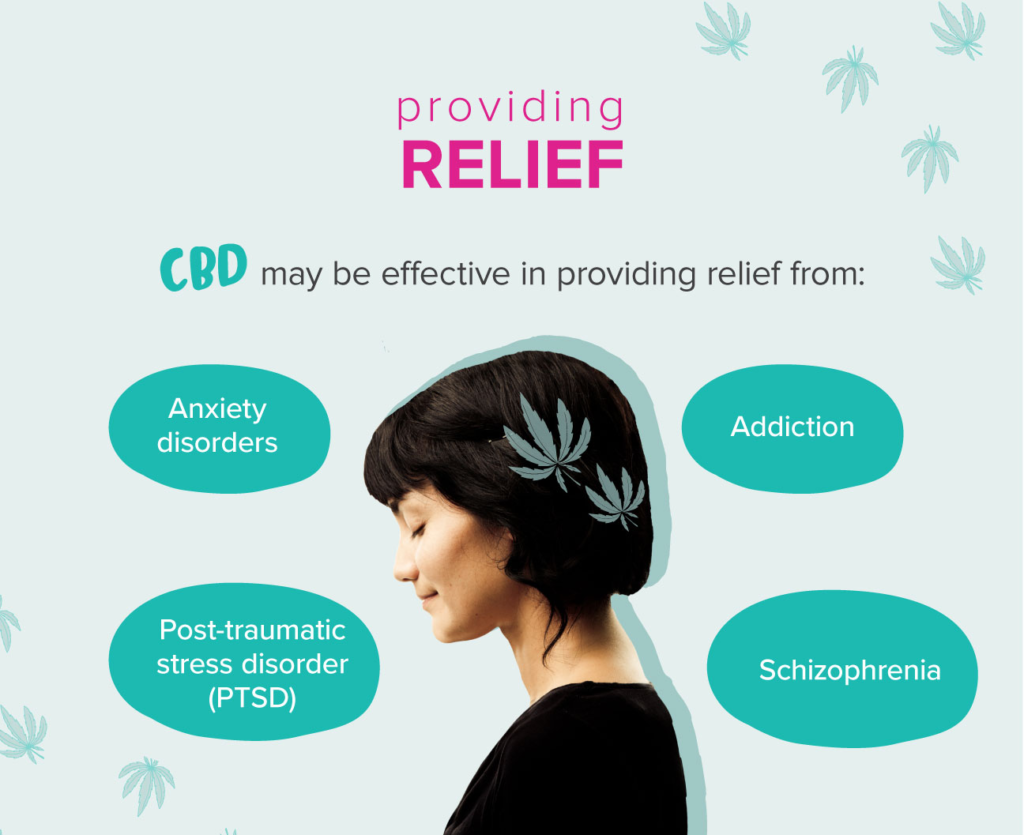What is CBD exactly ?
Cannabidiol (CBD) is one of many active compounds in cannabis. It has no psychoactive effects, unlike tetrahydrocannabinol (THC). This means that CBD does not cause a “high”.
Cannabis-derived CBD products may be more effective than hemp products, but CBD derived from industrial hemp still offers many health benefits.
What are the benefits of CBD?
It’s not very clear how CBD works, but it’s thought that it can activate or block cannabinoid receptors CB1 and CB2.
These receptors regulate processes such as sleep, mood, and appetite as part of the endocannabinoid system (ECS).
CBD may also interact with certain serotonin or opioid receptors and may stimulate processes that lower cholesterol and blood sugar levels.
It may also affect PPAR gamma activity. This activity affects the release of intracellular calcium, which is responsible for a number of cellular activities.

There isn’t much research on CBD, but the results of what has been researched are promising. Several studies have found CBD may be effective in helping alleviate various physical and mental health conditions.
One study in mice found that CBD oil can treat pain associated with arthritis, while another study in human cells found that CBD cream is an effective anti-inflammatory.
Likewise, CBD has also been shown to help treat childhood epilepsy and other seizure disorders. Some evidence points to the anti-cancer properties and benefits of CBD in managing the side effects of cancer treatment.
More research is needed to truly understand the potential benefits of using CBD as a treatment for physical and mental health conditions.
Side effects of CBD
CBD may cause some side effects. These include nausea, irritability, drowsiness, or increased thoughts or behaviors related to suicide.
It is important not to mix CBD with alcohol or any drugs that have a sedative effect. You should also monitor any changes in your mood or thinking patterns.
What forms does CBD come in and how to use it?
CBD is available in many different forms. This allows people to tailor their usage method to their specific needs. Below are the most common forms of CBD.
CBD oil dropper
The most common use of CBD is under the tongue with a dropper. The oral mucosa is filled with tiny capillaries that absorb compounds quickly.
Topicals containing CBD can be used to treat muscle and joint pain. They can also treat certain skin conditions, like eczema and psoriasis.
CBD patches work similarly to nicotine patches.

CBD capsules and pills can be used for systemic treatment of seizure disorders and digestive problems.
The Food and Drug Administration (FDA) recently approved Epidiolex, the first high-potency CBD drug to treat seizure disorders.
However, there is a downside with the capsule form: The time from ingestion to onset of effects can take some time.
Edibles food
According to a February 2023 Healthline survey of 1,044 U.S. adults who currently use, have used, or want to try CBD products, CBD gummies and other edibles are The most popular way to use CBD.
Vaporizing CBD, like vaping for CBD, is the fastest way to experience the effects.
The compounds are inhaled and absorbed directly from the lungs into the blood. However, there may be a risk of lung tissue damage, so use caution.
Best dosage for CBD
According to a 2017 study, the maximum dose people can tolerate orally is 1,500 milligrams (mg) per day.
Additionally, because CBD is relatively new on the market and not yet well regulated, there is always a risk that CBD products may contain more THC than indicated.
There may also be differences in actual CBD content between products.
“It’s important to start with a low dose until you know how your body will react to CBD,” explains Lindsay Slowiczek, PharmD. “A wide range of CBD dosages have been tested in clinical studies, but more evidence is needed before recommendations can be made regarding safe and effective dosages for specific uses.
“For now, use the recommended dosage of the product unless your doctor tells you to take a larger dosage,” she continues. “People with certain health conditions, such as liver disease, may need lower doses to avoid serious side effects.”